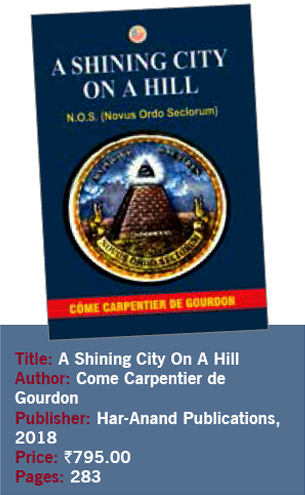THE history of independent India will recognise the contributions of many distinguished ministers of the Union Cabinet. But it is difficult to recall many from the post-Nehru generations who have reflected on the great policy issues they confronted in office. Jaswant Singh, who served as the minister for foreign affairs, defence, and finance, and headed the Planning Commission, is clearly an exception.
It is with great anticipation, then, one picks up Singh’s latest book, India at Risk. He begins by asking a very big question. Why does India continue to flounder when it comes to national security management? Jaswant Singh identifies a number of factors, including the debilitating impact of the Partition that broke up the strategic unity of the subcontinent, the turbulence generated by nation building, the lack of sensibility to India’s territoriality, and the failure to develop a statecraft that can get on top of the many security challenges confronting India.
Much of the book is devoted to a critical assessment of the Jammu and Kashmir war in 1947-48, the wars with China and Pakistan in 1962 and 1965 respectively, and the liberation of Bangladesh. This is not the traditional attack from the opposition on Jawaharlal Nehru and the Congress party for their deemed failures. Singh is more philosophical than polemical in his criticisms of Indian mis-steps in the first decades after Independence.
Singh has an incisive chapter on what he calls “India’s destructive decades”—the 1970s and 1980s—when the nation was at war with itself in the Punjab, Assam and the North East. He is at his clinical best in assessing India’s unsuccessful military intervention in Sri Lanka in the late 1980s.
The last two chapters are of great interest, for they deal with security issues that Singh was involved with as a senior minister. After all, this was a period when India ended its prolonged atomic ambivalence, conducted five nuclear tests, declared itself a nuclear weapon power, sought to negotiate on Kashmir with Pakistan, launched military operations to vacate Pakistan’s Kargil aggression, explored a boundary settlement with China, and coped with the mounting challenges of terrorism.
Singh, however, whets the appetite but stops short of serving the main course. The short chapter on nuclear issues does not walk us through the complex manoeuvre that he and his colleagues in the NDA government undertook to soften the negative international reaction and lay the foundation for India’s eventual accommodation with the United States and the global nuclear order.
He does much better in his final chapter where he lays out the story of Vajpayee’s bus journey to Lahore, the response to the Kargil surprise, and Kandahar hijacking and the Agra debacle with Gen. Pervez Musharraf. His valuable narrative plugs some of the gaps in what is known about these controversial events.
Given his stature and record, we expect more from Singh. A detached but critical review of the Vajpayee years, for example, would have been immensely instructive for the next generation of Indian leaders. One would urge Singh to take up on this unfinished task, especially the one tantalising proposition that he begins and ends India at Risk with. Singh insists that India will remain “immobilised in thought” and “physically impaired in its responses” if it does not break out of the strategic confinement imposed by four lines: Durand Line, McMahon Line, Line of Control, and Line of Actual Control.
Few have thought more deeply than Singh on the imperatives of consolidating India’s territoriality. The Congress government, despite a decade-long tenure, has failed to finish what Vajpayee started with Pakistan, China and the neighbourhood. One hopes that in his next book, Singh will elaborate on how India can overcome the consequences of Partition, settle its border disputes, reimagine its frontiers and restore the strategic unity of the subcontinent.
















































